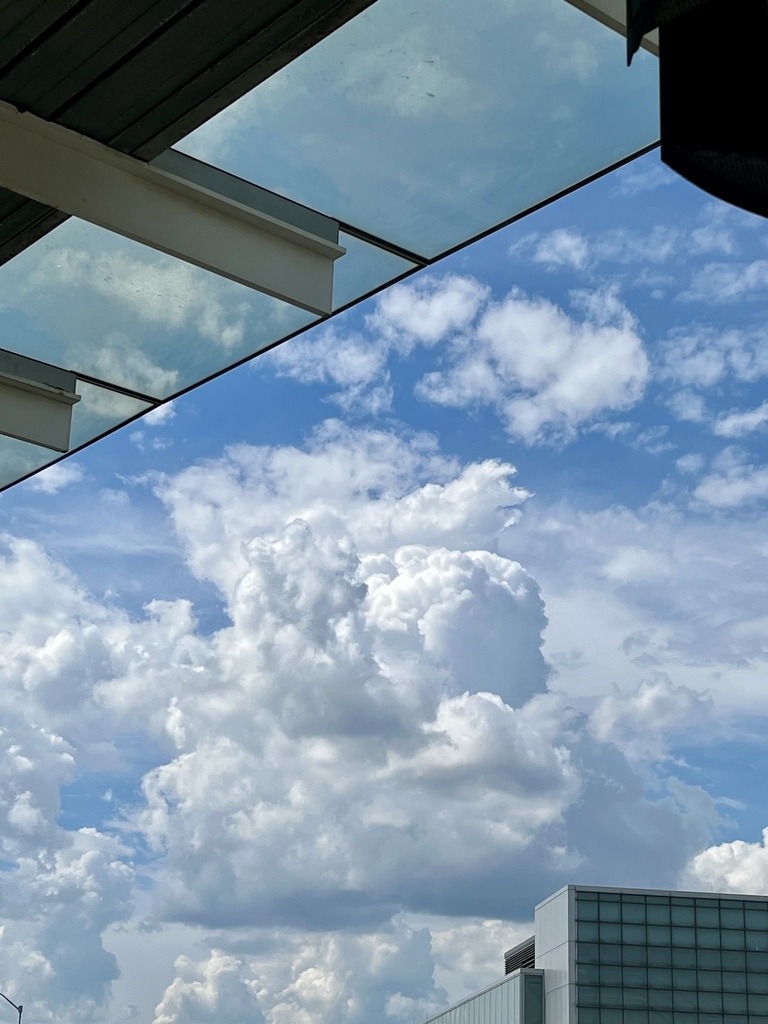Do adults who homeschooled as children reflect upon the difference in their education?
How about their childhood as a whole?
And resilience, initiative and self-determination … what do they think about those?
I’m sleepy today after a long, late night conversation about the outcome of homeschooling with one of my adult kids. How often does this happen? Almost never. As much as we parents talk and read and listen and observe in order to learn as much as possible, for our kids, it’s often just their life. I don’t mean that my kids didn’t realize that some kids go to school and they didn’t but rather that it’s not a lifestyle choice that they originally made and need to defend or take responsibility for. It’s their “normal.” We’re over here as parents immersing ourselves in every piece of information and perspective about education and parenting that we can find 😉 and our kids are just busy learning and being themselves.
I also think homeschooling identity probably plays as much of a part as is proportional to what we’ve made it into as a parent. My children’s childhood wasn’t filled with me talking about homeschooling or unschooling or deschooling, or diminishing schools – we had lots of family and friends choosing school and if the topic came up, we were pretty matter of fact that there were different ways of living and learning and this was what our family was doing. I didn’t hide concerns I had with school, but I didn’t amplify them. Homeschooling was not their identity.
However, it does come up occasionally.
And it came up with one of my sons last night in the form of reflection about the workplace – getting along with other people, resilience, initiative and self-direction.
The conversation then shifted to bigger picture/longer term self-direction and self-determination and how many things link together … personal/relational life choices, career, ongoing education, passions and hobbies.
He acknowledged the complexity of these things but wasn’t remarking about how he himself was struggling. Instead he spoke about how either paralysed or impulsive other people’s decisions seem to him. Basically, now that he is an adult, he’s a bit blown away by how directionless a lot of adults of all ages seem to be.
I said something like, “Well… here’s where I suspect homeschooling and having self-directed your learning have a lot to do with the abilities you notice in yourself and why it might seem smoother to you. You’ve been making decisions and had room to try and fail and see what works for you throughout your whole life.”
To be clear, he wasn’t bragging. Also, his life isn’t completely smooth and clear, but somehow there’s a resilience there to work away at things in the present time that’s simultaneous with an ability to zoom out and imagine possibilities. Thinking he had it all together was never the point of what we were talking about. It was just a genuine curiosity about why so many adults have a difficult time with what seem to him like everyday choices and interactions.
And so for the first time in a long time the conversation turned to home education, and I was kind of fascinated to hear the things he said. Fascinated because often when I have conversations with my family, I come away reminded of how we can all see the same situation quite differently, but in this case, it felt like we were very much speaking the same language, and so many of the things I’ve quietly noted over the years were things he was articulating and understanding. He was processing all the little momentsand experiences that accumulate and form a whole.
He recounted times when we’d be at the science museum with friends, and the school buses would come in after us with adults calling out to the kids about which group which student was in and lining up here and doing that there, and reminding them all what the plan for the day was and that to him it often sounded like a lot of hollering. And that already by early afternoon it seemed like they were calling and rounding everyone back up again and leaving. He pondered how anybody was really getting to explore much or check many things out. Then after they left he remembered we had so much space to have fun and spend detailed time with things, each child figuring out what was interesting and meaningful to them.
We talked about the ability we had for him and another brother to decide how to navigate an online high school class in which the teacher didn’t want the three of us to discuss the content of the assignment and was quite directive about it – any learning was to come from her and the lecture content. Discussion before completing the assignment was akin to cheating, she felt. We talked about how much the three of us ended up learning about Boom or Bust economy and the impact on small communities late that night around the kitchen table, each sharing information from our respective computers or phones. We realized we could appreciate the prompt from the course to learn something new without having to take another standardized class that literally got in the way of actually learning the information it was trying to pass on.
AND we realized we could also take a deep breath and that either of the guys could take more of those classes if necessary for a college requirement, which is exactly what one of them did. It feels incredibly different to make a decision to pursue something short-term for a longer term goal and have developed the ability to analyze and reflect upon it than it does to blindly take it because you’re just heard that’s what you have to do.
So we talked about that and we talked about the talking about it! We remembered how we decided together what might work best, both for that particular assignment as well as what each of them would like moving forward and how that could even change. We also chatted that night several years ago about what I (yes, me! It can’t always just be about the kids) would like moving forward. I shared with them at the time that while I understood the purpose of the online courses, I was struggling with how far those classes had moved our life and attitudes about learning from the deep, rich learning we’d had. Not that there weren’t benefits and lots to be learned from them but that I longed to see if we couldn’t “take the best and leave the rest” so to speak. How we moved forward with doing exactly that is a longer (and enjoyable) story, but the point for these purposes is that they knew, that night and in continued conversation in the days that followed, that there was nuance to decisions and that was okay. Things were discuss-able, could be revisited and changing one’s mind was valid, even welcomed.
He brought up some earlier childhood times in our conversation last night. Together we remembered the joy of hours of open-ended play with other kids, but also of some playground scuffles and the difference between families being able to have a conversation together about what was happening between a couple of children versus a school calling parents in and mediating from the top down. Sometimes those playground conversations didn’t go as smoothly as we’d all hoped because life doesn’t always get tied up fairly with pretty bows … enter natural examples of developing an understanding over time that things don’t always go our way! However, a child knowing that the adults are trying and that there’s an opportunity to be seen and heard and that it’s okay to feel anger about how things played out goes a long way toward recognizing their inherent worth. We talked about the complexity of apologies (this is also discussed in the last half hour of the Virtual Kitchen Table Episode #42: What to Do When We Feel Like a Rubbish Parent – 13 Steps to Deal with Parenting Doubt based on the Taking a Kinder Path blog post of the same name).
One thing that stands out for me is that learning how to question things, be flexible and make a change do not stop a child from becoming an adult who is able to follow rules when they are needed and functioning within a conventional world. What they do seem to allow is an ability to manage within and be part of social order at the same time as analyzing, reflecting and being open to sifting through how that social order works or doesn’t for them and others. If anything, his “sifting through” right now is in figuring out why people are so resistant both to following necessary rules and taking initiative – why a sizeable number seem “work resistant,” in either direction, so to speak.
The word “resistance” led us to explore the idea that “coercion creates resistance.” Although employees might be there by choice and the tasks being asked for aren’t outside of what is practically necessary, having had years and years of schedules and learning activities set out for them and a system of reward and punishment laid out based on whether they performed them in the expected way or not, they might resist – consciously or subconsciously – to having expectations placed upon them.
Near the end of the conversation my son described a recent conversation that had come up with a colleague about homeschooling that was positive and detailed beyond the standard, “Really? You don’t seem as if you were homeschooled.” responses, and how good it felt to have a more specific conversation. Apparently they delved into the financial logistics and practicalities of time as well as social development and more.
As I rubbed my eyes, ready for sleep, for the first time from this particular son, a heartfelt “thank you” was given that was specific to homeschooling, and then another – not that I expected it or had ever actually noticed its absence before, but in that moment, it was just so nice.
We wonder if our kids will resent home education. I’ve had people ask me directly about that and worry about how that will play out with their own children. We can never know, of course, and their perspectives may even change throughout adulthood, but what a very cool experience to be able to have some positive reflection with an adult son and be able to shed some potential light on things he’s noticing.
These days I have the very real honour of having developed new and mostly online friendships with adults who homeschooled and unschooled as children and it is such a breath of fresh air to know them and hear their perspectives. I know there’s some concerning stuff out there – absolutely – but it’s so good to hear from people whose parents were well-intentioned. I’m not going to go to great lengths to add disclaimers here about the range of imperfections and bad things that have happened in the name of homschooling beyond generally acknowledging them, but where well-meaning parents are present, there is so much possibility in living and learning in family and community, taking the individual child into consideration.
Do you ever wonder what kids will someday remember and reflect about from their childhood? Do you worry about it?
Enjoy this post? Please share.

